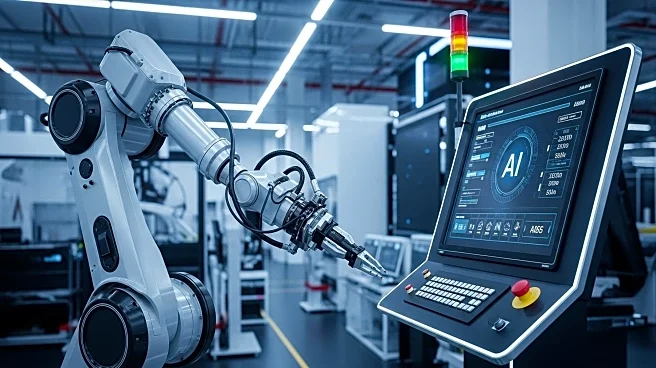What is the story about?
What's Happening?
Machina Labs has announced a new robotic approach to automotive body manufacturing, aiming to enable vehicle makers to produce customized vehicles at mass-production prices. The company's RoboCraftsman platform integrates advanced robotics and AI-driven process controls to manufacture complex metal structures for aerospace, defense, and automotive applications. This approach eliminates the need for dedicated tooling per model variation, reducing project capital and storage requirements, and allowing for faster production changeovers. Machina Labs' technology enables incremental sheet forming, which can deliver customized panels from sheet metal at high volume and quality, with short lead times.
Why It's Important?
The introduction of Machina Labs' technology could significantly impact the automotive industry by allowing for greater customization and flexibility in vehicle design and production. This could lead to a shift in manufacturing paradigms, moving away from traditional high-volume production models to more adaptive and personalized approaches. The ability to produce customized vehicles at lower costs and faster speeds could benefit consumers seeking personalized products and manufacturers looking to reduce costs and improve efficiency. Additionally, the technology opens up possibilities for using new alloys, such as titanium and nickel, which were previously difficult to form using traditional methods.
What's Next?
Machina Labs plans to continue integrating its systems into automotive production, with a focus on learning how to produce a few thousand vehicles or more. The company is collaborating with Toyota Motor North America on a pilot project to apply its RoboForming technology to customize body panels, aiming to bring automotive-grade quality and throughput to low-volume manufacturing. This collaboration could pave the way for broader adoption of Machina Labs' technology in the automotive industry, potentially leading to more widespread customization options for consumers.
Beyond the Headlines
The shift towards personalized manufacturing could have broader implications for the automotive industry, including changes in supply chain dynamics and manufacturing processes. As customization becomes more accessible, manufacturers may need to adapt their operations to accommodate more diverse product offerings and shorter production cycles. This could also lead to increased demand for advanced robotics and AI technologies in manufacturing, driving further innovation and development in these fields.
















